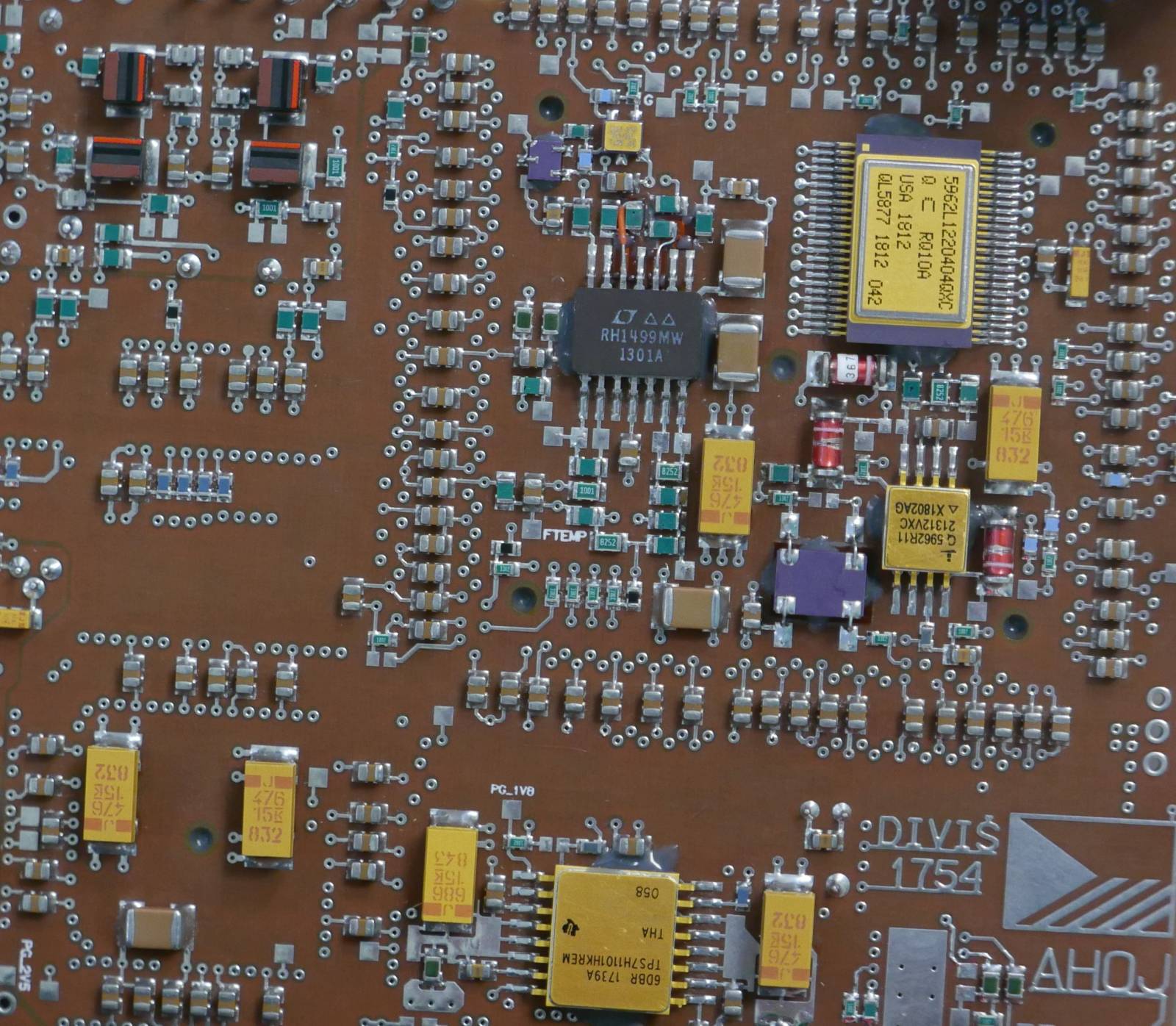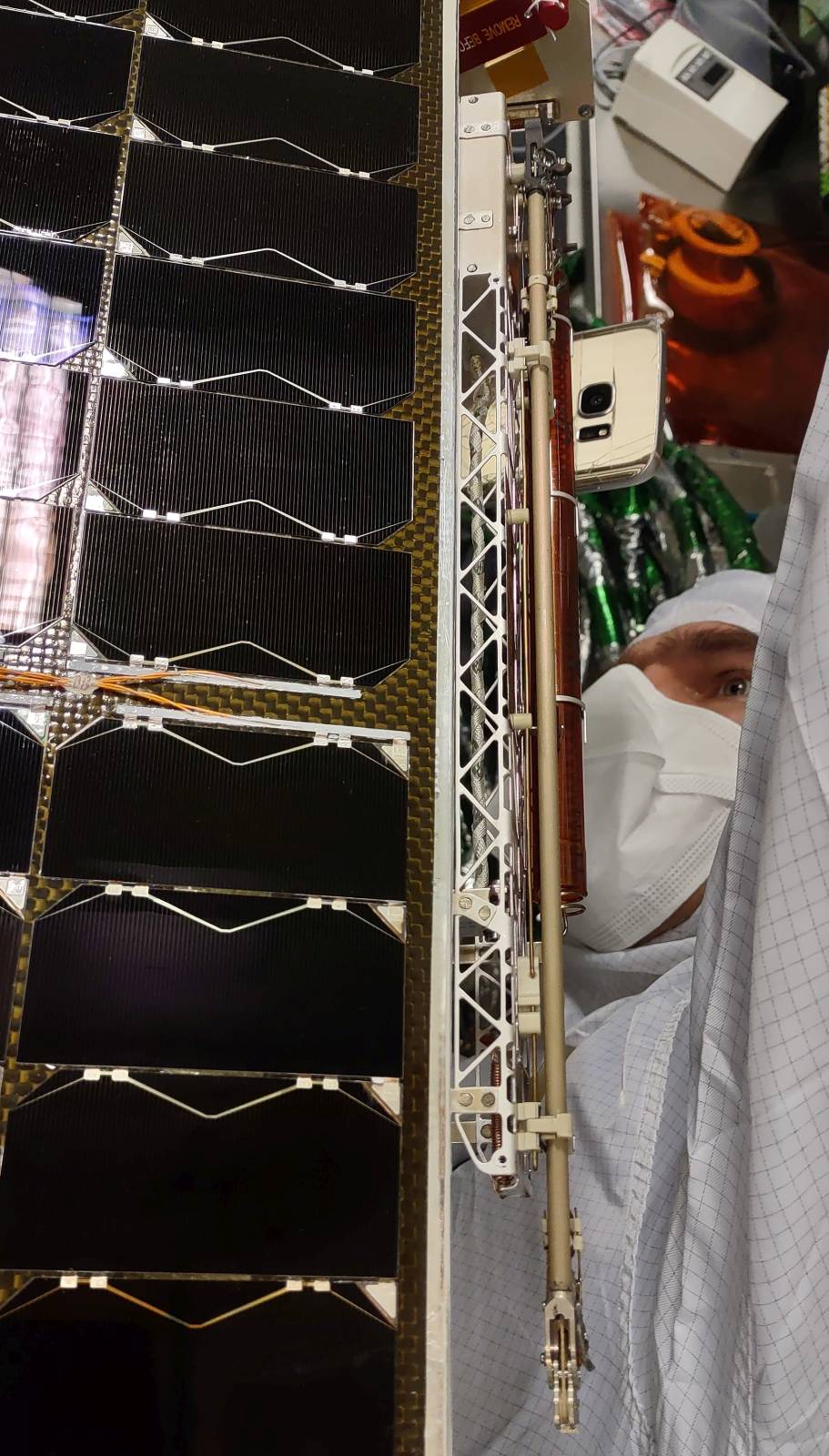
Czech scientists' device won't go to Mars, the launch suspended by war
18. 03. 2022
In the near future, we will not find out if there are atmospheric discharges on Mars caused by the charging of flying dust, or if electromagnetic waves at audible frequencies can spread from the space environment of the red planet to its surface. These are the main goals of the Czech scientific device which was supposed to land on Mars in the spring of 2023. On 17 March 2022, the Council of the European Space Agency suspended the ExoMars 2022 interplanetary probe project, of which the Czech device is a part. This is a response to the consequences of Russian aggression against Ukraine. The Russian space agency was supposed to ensure the launch of the probe in September this year and its landing platform as well
The mystery of the existence of “lightning" on Mars will yet remain unsolved. The Czech device is supposed to measure changes in the electromagnetic field in the audible frequency range, where possible atmospheric discharges could also be manifested. Besides the Earth, scientists have previously detected these on Jupiter, Saturn, Uranus, and Neptune. The possibility of their existence on Mars is still covered in mystery.
"If such discharges exist on Mars, they certainly don't look like terrestrial lightning," says Ondřej Santolík, the head of the Czech research team from the Department of Space Physics of the Institute of Atmospheric Physics of the Czech Academy of Sciences. "We can only guess what they might look like based on the information we have about the thin atmosphere of our neighbouring planet. No one has yet observed these discharges optically, nor have we yet been able to detect their low-frequency electromagnetic waves.”
"In fact, the device intended to measure the electromagnetic field changes in the audible frequency range has never landed on the surface of Mars. And it will not set out on the nearly 600-million-kilometer journey to the red planet this year either. As well as the scientific device, which carries the Czech flag on its circuit board, the 11 recordings selected by an international jury from 584 30-second sound recordings in the "Phone call from Mars" competition will not fly into space either. The competition was organized by the Department of Space Physics of the Czech Academy of Sciences and by the popular science magazine Vesmír. One of these recordings was intended as test data to be broadcast from the surface of Mars back to the Earth.

Part of the circuit board of the electronics of the device for measuring the electromagnetic field changes on the surface of Mars; on the right is the Czech flag and a salute, alongside with a tribute to the priest and natural scientist Prokop Diviš, who built the first European lightning rod in 1754. PHOTO: Institute of Atmospheric Physics of the CAS

Ing. Radek Lán from the Department of Space Physics of the Institute of Atmospheric Physics of the CAS checks the composite electrical antenna of the Czech device, made in collaboration with the Institute of Scientific Instruments of the CAS. Photographed on 23 February 2022 during the final adjustments to the device in the clean rooms of the TAS in Turin, Italy. PHOTO: Institute of Atmospheric Physics of the CAS.
Read also
- Scholars from the Czech Academy of Sciences will help make key UN documents on refugee policy in post-communist Europe accessible
- New perspective on the climate crisis: an ERC Consolidator grant
- World first for Czech science: egg ageing can be reversed
- How the human genome duplicates. A Czech becomes a new EMBO Young Investigator
- For the First Time Ever, a Czech Scientist Wins the international Dream Chemistry Award
- AI recognises parasitic eggs better than the average ornithologist
- IOCB researchers take a key step toward fully controllable molecular machines
- Two of Europe´s most prestigious grants awarded to the Czech Academy od Sciences
- Czech scientists discover a cellular “safety switch” that protects DNA from damage
- Fungi may use toxic substances to spread skin infections from guinea pigs to children
Contacts for Media
Markéta Růžičková
Public Relations Manager
+420 777 970 812
Eliška Zvolánková
+420 739 535 007
Martina Spěváčková
+420 733 697 112